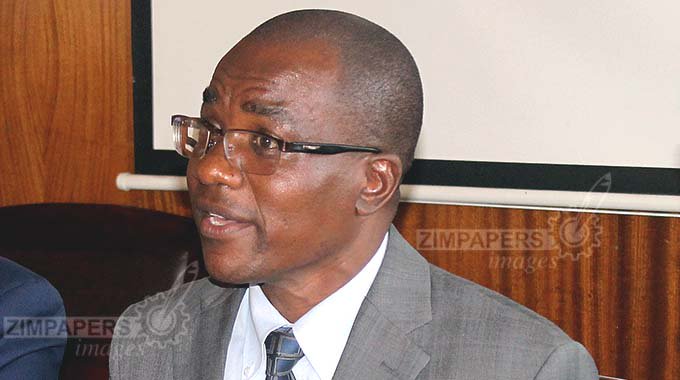Exporters to keep part of export proceeds

Golden Sibanda and Africa Moyo
The Reserve Bank of Zimbabwe will allow exporters to keep part of their export proceeds, before compulsory conversion to local currency, for periods longer than the prescribed 30 days in exceptional circumstances where such need arises to avoid choking companies’ operations, it has been learnt.
This comes after central bank governor Dr John Mangudya, indicated in the 2019 Monetary Policy Statement that exporters would be allowed to retain a prescribed percentage of their export proceeds in hard currency for only 30 days, after which the unused funds will be released onto the market at the prevailing exchange rate.
Dr Mangudya floated the US dollar exchange rate against the RTGS dollar and other currencies within the multi-currency basket through the introduction of interbank market.
The interbank opened at 1:2,5, lower than average 1:3,5 on the parallel market, but has crept up to 2,75 as of yesterday.
Manufactures now retain 80 percent of their export proceeds; gold producers (55 percent); other minerals (50 percent); tobacco and cotton merchants, for input schemes (80 percent); tobacco growers; 50 percent, cotton growers; 30 percent while horticulture, transport, and tourism will retain (80 percent).
The balance of the export proceeds, which is not subject to retention at all by decree of the central bank, is immediately converted to RTGS dollars at the prevailing exchange rate upon receipt to improve forex liquidity on the market.
The new retention thresholds have already taken effect and an exchange control directive was issued in this regard.
“Companies will not be constrained (by the compulsory conversion to RTGS dollars) because there is an exchange control authority that is given to those people who are genuine,” Dr Mangudya said in a recent interview.
“Where there are exceptions, they (exporters) are given that exchange control authority/ approval.
“Just like CD1 forms (acquittal), we say people (exporters) must acquit in 90 days, but others don’t submit within that period because of certain challenges.
“The exporters know that there is a law (providing for that).”
Confederation of Zimbabwe Industries (CZI) president Sifelani Jabangwe, said while the retention thresholds were commendable, the 30-day period was too short.
“We understand the need for the 30-day window but we believe the ideal thing is to have a window of 90 days to 180 days,” said Mr Jabangwe. “It will give comfort to the depositor (exporter) that I will not be forced into expenditure.
“When people are forced to spend, they will spend irrationally, sometimes on raw materials and yet the liquidity for the company is not good.”
Hospitality Association of Zimbabwe (HAZ) president Innocent Manyera concurred with CZI president, Jabangwe.
“Indeed, the wheel should be given time to turn. With the time period given, we might be faced with panic buying and unplanned expenditure might also end up affecting other cost line items.
“Cash flows are not that liquid. We need to spare for different expenditures without panic and captive expenditure,” Mr Manyera said.
Dr Mangudya said the latest policy position was in fact an improvement, given that before October 2018, companies could only retain their export proceeds for a period of 14 days.
Economist Persistence Gwanyanya echoed Dr Mangudya’s sentiments, saying the 30-day retention window was “just for regulation purposes, otherwise for genuine requests…extensions have always been granted.”









Comments